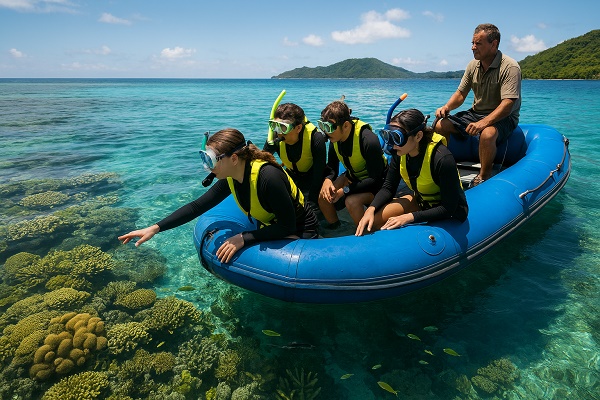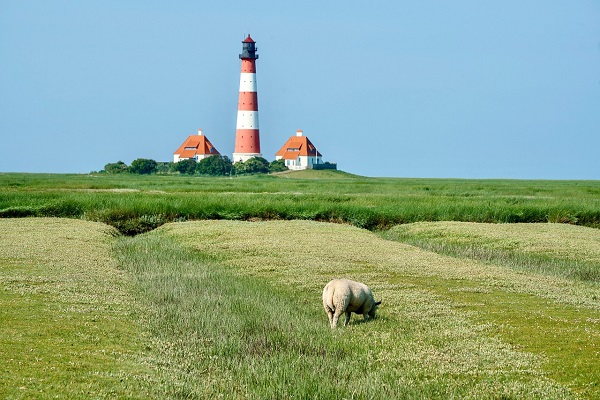Ecotourism Travel: A Journey Toward Sustainable Adventures

Ecotourism is a form of responsible travel that focuses on the conservation of nature and the well-being of local communities. As the world becomes increasingly aware of environmental challenges, travelers are seeking out experiences that not only allow them to explore the beauty of nature but also contribute to its preservation. Ecotourism combines exploration with conservation, encouraging travelers to appreciate natural environments while minimizing their ecological footprint.
What is Ecotourism?
Ecotourism is defined as environmentally responsible travel to natural areas that conserve the environment, respect local cultures, and promote sustainable economic development. Unlike traditional tourism, which may exploit natural resources, ecotourism aims to enhance the ecological and social value of a destination. It emphasizes low-impact, sustainable travel practices, ensuring that the destinations visited remain unspoiled for future generations.
Core Principles of Ecotourism
Conservation of Nature: Ecotourism seeks to preserve ecosystems and protect endangered species. Tourists are often encouraged to visit protected natural areas, such as national parks, wildlife sanctuaries, and marine reserves.
Respect for Local Cultures: Ecotourism promotes understanding and respect for indigenous communities and their cultural heritage. Travelers are encouraged to learn about local traditions, customs, and sustainable practices while supporting local artisans, farmers, and businesses.
Sustainable Development: The goal of ecotourism is to generate economic benefits for local communities while ensuring that tourism does not harm the environment. It aims to create long-term, sustainable economic opportunities that rely on the conservation of natural resources.
Minimal Environmental Impact: Ecotourism encourages responsible travel behaviors, such as reducing waste, minimizing energy consumption, and supporting eco-friendly accommodations. Travelers are encouraged to leave no trace and follow guidelines that protect the environment.
Popular Ecotourism Destinations
Ecotourism is growing in popularity worldwide, with many countries offering unique destinations that combine nature, wildlife, and cultural heritage. Here are some popular ecotourism destinations:
Costa Rica: Known for its biodiversity, Costa Rica has embraced ecotourism, with lush rainforests, abundant wildlife, and sustainable practices. Visitors can explore the famous Arenal Volcano, Monteverde Cloud Forest, and Manuel Antonio National Park.
New Zealand: The country's commitment to sustainability and conservation makes it a prime destination for ecotourism. Visitors can enjoy outdoor adventures such as hiking in Fiordland National Park, wildlife watching on Stewart Island, or exploring the geothermal areas of Rotorua.
Bhutan: Bhutan has made a name for itself as a leader in sustainable tourism. The government limits the number of tourists each year to preserve its pristine environment. Travelers can trek to the iconic Tiger’s Nest Monastery and explore the Himalayan landscapes.
Kenya: Kenya's national parks, including the Masai Mara and Amboseli, are famous for their wildlife safaris. Ecotourism here involves responsible wildlife viewing and contributing to conservation efforts that protect endangered species like elephants and rhinos.
India: India offers a wide variety of ecotourism experiences, from the Himalayan regions of Uttarakhand and Himachal Pradesh to the coastal regions of Kerala. India's national parks, including Jim Corbett, Kanha, and Sundarbans, are home to diverse wildlife and rich ecosystems.
Benefits of Ecotourism
Environmental Conservation: Ecotourism helps protect natural habitats and species through conservation efforts funded by tourism. Entrance fees, donations, and partnerships with conservation organizations are often used to fund environmental protection projects.
Cultural Preservation: Local communities benefit from tourism in the form of job creation, income generation, and the preservation of cultural heritage. It also fosters cross-cultural understanding and appreciation between travelers and indigenous populations.
Educational Value: Ecotourism provides opportunities for travelers to learn about ecosystems, wildlife, and sustainable practices. Many tours are led by local guides, who share their knowledge of conservation efforts and the importance of protecting natural resources.
Sustainable Economic Growth: By supporting eco-friendly businesses and services, ecotourism creates long-term economic growth in rural and underdeveloped areas. It encourages diversification away from industries that harm the environment, such as mining or deforestation.
How to Be a Responsible Ecotourist
Choose Sustainable Accommodations: Opt for eco-friendly hotels, lodges, or homestays that prioritize sustainability, such as those that use renewable energy, reduce waste, and support local communities.
Respect Wildlife: Always maintain a safe distance from animals, avoid feeding them, and follow ethical wildlife viewing practices. Participate in tours that follow responsible wildlife management principles.
Reduce Your Carbon Footprint: Consider using public transportation, walking, or cycling to minimize your impact on the environment. Offset your carbon emissions by contributing to environmental programs or planting trees.
Support Local Economies: Purchase handmade crafts, local produce, and services from local artisans, guides, and businesses. This helps sustain the local economy and ensures that the benefits of tourism are distributed fairly.
Leave No Trace: Follow the principles of "leave no trace," ensuring that you dispose of waste properly, stay on designated trails, and respect natural habitats.
Conclusion
Ecotourism is more than just a travel trend—it's a movement toward sustainable and ethical travel that benefits both the environment and the local communities. As travelers, we have a responsibility to ensure that the natural beauty we enjoy today remains preserved for future generations. By choosing ecotourism, we can embark on adventures that contribute to the protection of our planet while supporting the livelihoods of those who call these incredible places home.
























